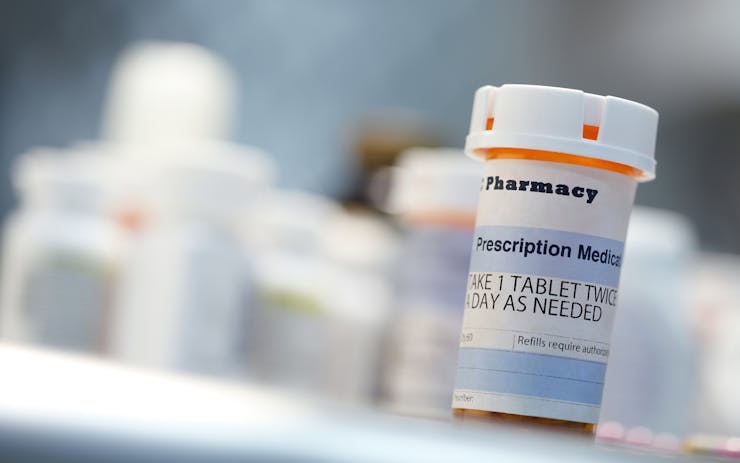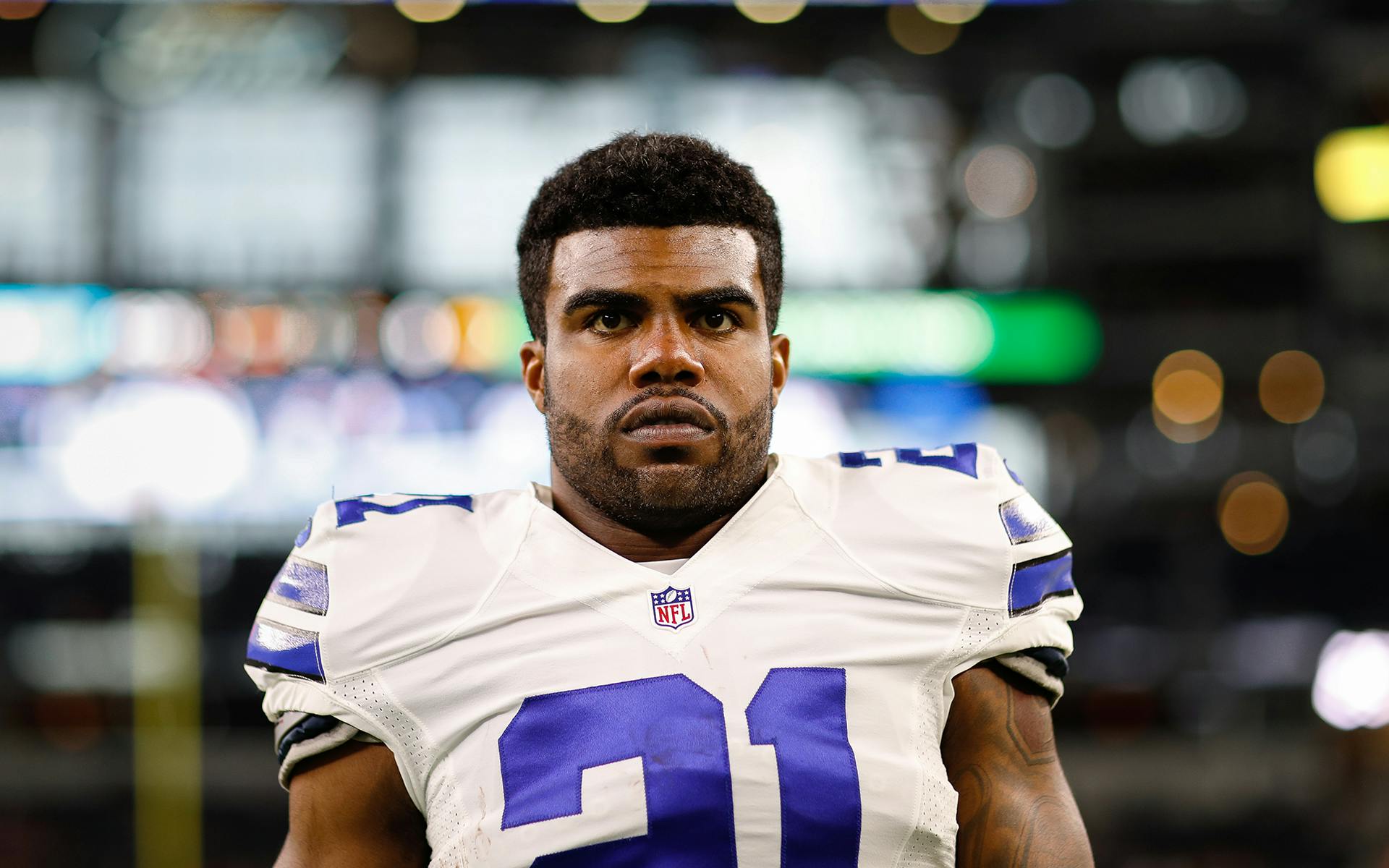The Falcons spent how much on painkillers?
Emails brought to light last week by a class-action lawsuit revealed that officials with the Atlanta Falcons, who play the New England Patriots in Sunday’s Super Bowl LI, were alarmed by the team’s prescription medication use as early as 2010. The emails suggest that the Falcons’ head trainer, along with the team’s management, were concerned about an “excessive” reliance on painkillers to treat players. The team was worried that the information, if it went public, could embarrass the team and the league.
As first reported by the Associated Press earlier this week, those concerns were raised by a review of medication use by an outside agency. The agency found that the Falcons spent $81,000 on prescription medications for the team’s players in 2009—nearly three times the league average of $30,000.
The news came at a time when the NFL’s zero-tolerance ban on cannabis use is coming under increasing scrutiny, especially from former players damaged by the league’s reliance on prescription painkillers to keep athletes on the field. On Wednesday, retired players working with the Cannabis Gridiron Coalition were featured on ESPN’s “Outside the Lines,” discussing their medical use of cannabis and how it helped them kick the painkiller habit.
The emails were entered into court last week as a part of a class-action lawsuit by more than 1,800 former NFL players, titled Evans v. Arizona Cardinals Football Club. The lawsuit alleges that NFL trainers distributed drugs improperly and that teams failed to properly store and keep accurate records of the drugs—violating federal laws. The case is being heard in the Northern District of California by US District Court Judge William Alsup.
These are the same allegations that were originally filed in a 2014 class-action lawsuit, Dent v. NFL, in 2014 that was later dismissed.
The former players allege that NFL clubs have conspired since at least 1964 to have trainers dole out pills and inject players with painkillers, sometimes mixing them with other drugs in dangerous cocktails, to get them back on the field to drive league profits.
The email chain included Falcons owner Arthur Blank, team president Rich McKay, general manager Thomas Dimitroff, and then-head athletic trainer Marty Lauzon. All of them are still working with the team, which plays the New England Patriots in Super Bowl LI on Sunday.
“That’s being litigated now. That’s not something we’re going discuss right now,” Dimitroff said Monday when asked by reporters at the official Super Bowl media event. “When the time is right, we’ll readdress that.”
According to reports on the emails, Lauzon emailed Dimitroff, “Within the first days on the job, I was informed that we barely missed a DEA [Drug Enforcement Agency] investigation because of improper billing issues.”
Dimitroff then forwarded Lauzon’s email to team owner Blank.
“I thought it quite important for you to be aware of a rather sensitive subject and one we need to discuss before we include others on this topic matter,” [Dimitroff wrote to Blank].
Shop highly rated dispensaries near you
Showing you dispensaries nearIn a later reply to the email, Blank suggested the group talk about the subject together along with team president McKay. It’s not clear which practices changed as part of that discussion, and there’s no evidence that the Falcons violated league rules.
What’s clearly evident though, is that Lauzon was concerned enough about what was going on that he warned team executives that what was found could be damaging to the team, and in the bigger picture, the NFL as a whole.
The lawsuit alleges that the NFL and its clubs have created a “return to play culture,” pressuring players to return from injuries as quickly as possible. From the lawsuit:
88. The Clubs have recognized the appeal of violence associated with football since the inception of the sport. But the Clubs have also recognized that, to give the public the best product possible, marquee players need to play, even if they are injured and in pain. One solution to this inherent conflict – violence sells but it also puts players on the sidelines who bring fans to the game – would be to play fewer games, give players more time to rest between games, and have larger rosters. But that would cut into the Clubs’ profit margins
89. Instead, the Clubs have resolved this inherent conflict in favor of profit over safety with more games, less rest (e.g., Thursday night football), and smaller rosters that save payroll expenses. And they achieve their ends through a business plan in which every Club employee – general managers, coaches, doctors, trainers and players – has a financial interest in returning players to the game as soon as possible. Everyone’s job and salary depend on this simple fact. The return to play culture was based on four cornerstone concepts: profit, media, non-guaranteed contracts, and drugs. As professional football entered the 1960’s, these bedrock concepts of the return to play culture would become the driving force behind every business decision made by the Clubs.
Court documents filed on behalf of the former players also asserted that NFL clubs have manipulated the media to increase league revenue and reinforce the “return to play” culture.
In 1965, the Clubs created NFL Films to market video of the Clubs’ games, coaches, and players. NFL Films highlighted the violence of the game and the “toughness” of its players. Dramatic collisions between players were highlighted in slow motion. Players who returned to the game with severe injuries were lauded as courageous heroes. These same themes were repeated by the broadcast networks. American folklore regarding professional football players was indelibly established – the players were super human warriors who played through pain for the integrity of the game they loved. The return to play culture became an accepted fact of doing business by the Clubs as profits soared
One specific example, attorneys for the player argue, occurred during the 1987 season, when the players union went out on strike, and the athletes were temporarily supplanted by “replacement players.”
Television ratings for these games dropped by more than 20%. The networks agreed to continue broadcasting them only when the Clubs agreed to reduce prices to enable the networks to recoup the losses. The Clubs never used replacement players again. On information and belief, this experience reinforced to the Clubs the importance of having “star” NFL players on the field.
Evans v. Arizona Cardinals Football Club et al is an ongoing case that will likely heat up after this weekend’s Super Bowl. Dallas Cowboys owner Jerry Jones, among others, is expected to be questioned in court about painkiller use in the coming weeks and months. Leafly will continue to follow the case and update as information becomes available.







